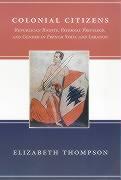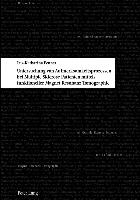Colonial Citizens
BücherAngebote / Angebote:
French rule in Syria and Lebanon coincided with the rise of colonial resistance around the world and with profound social trauma after World War I. In this tightly argued study, Elizabeth Thompson shows how Syrians and Lebanese mobilized, like other colonized peoples, to claim the terms of citizenship enjoyed in the European metropole. The negotiations between the French and citizens of the Mandate set the terms of politics for decades after Syria and Lebanon achieved independence in 1946. Colonial Citizens highlights gender as a central battlefield upon which the relative rights and obligations of states and citizens were established. The participants in this struggle included not only elite nationalists and French rulers, but also new mass movements of women, workers, youth, and Islamic populists. The author examines the "gendered battles" fought over France's paternalistic policies in health, education, labor, and the press. Two important and enduring political structures issued from these conflicts:. First, a colonial welfare state emerged by World War II that recognized social rights of citizens to health, education, and labor protection. . Second, tacit gender pacts were forged first by the French and then reaffirmed by the nationalist rulers of the independent states. These gender pacts represented a compromise among male political rivals, who agreed to exclude and marginalize female citizens in public life. This study provides a major contribution to the social construction of gender in nationalist and postcolonial discourse. Returning workers, low-ranking religious figures, and most of all, women to the narrative history of the region -- figures usually omitted -- Colonial Citizens enhances our understanding of the interwar period in the Middle East, providing needed context for a better understanding of statebuilding, nationalism, Islam, and gender since World War II.
Folgt in ca. 10 Arbeitstagen




